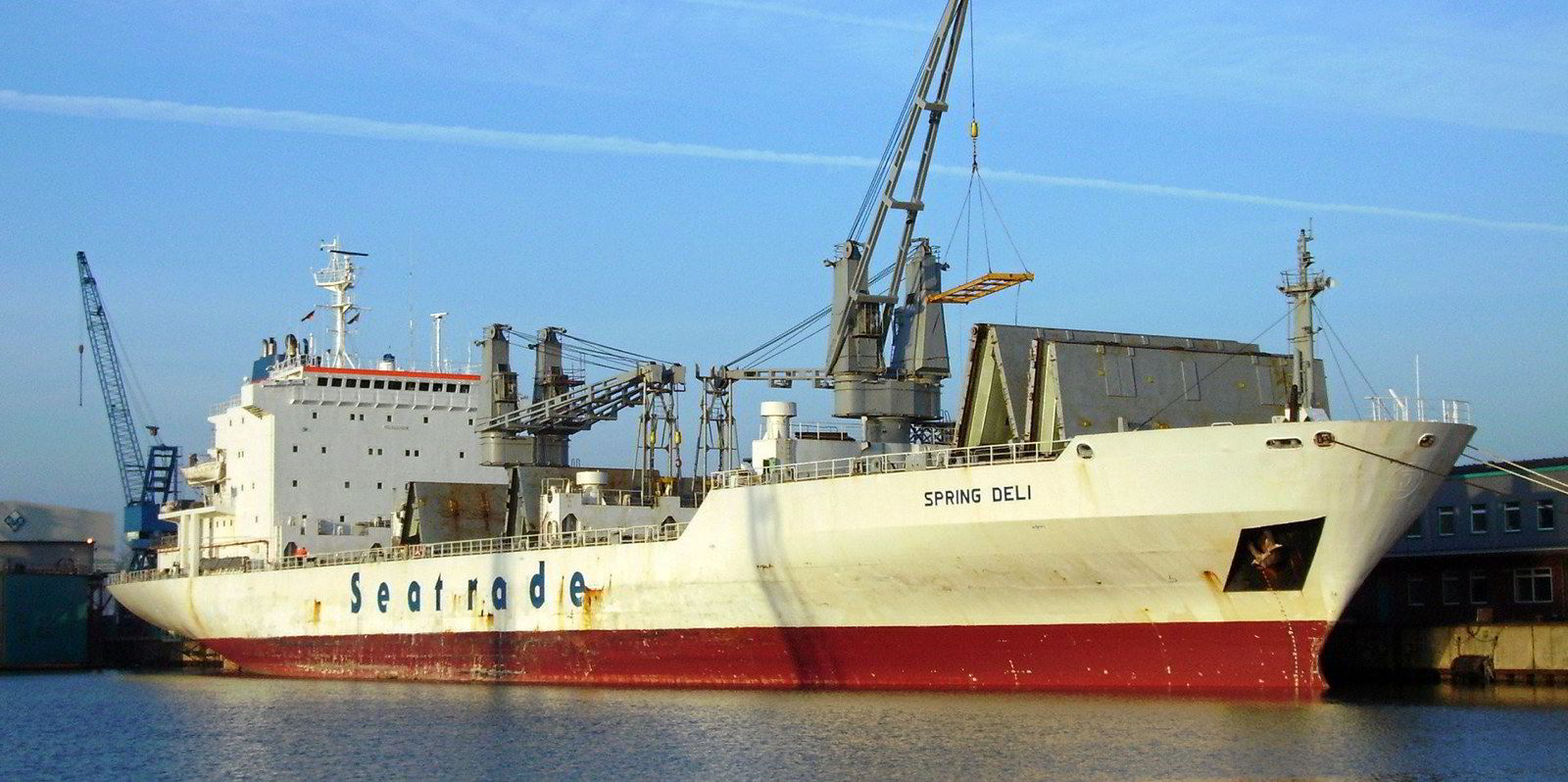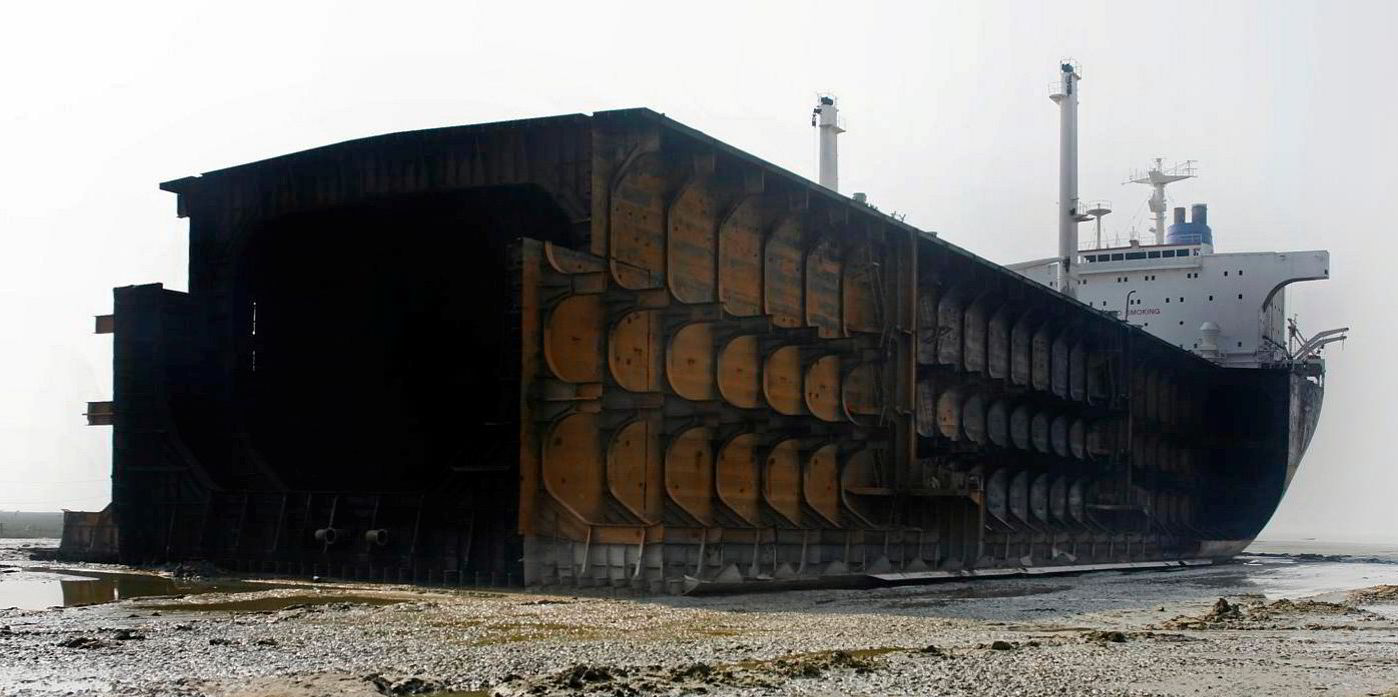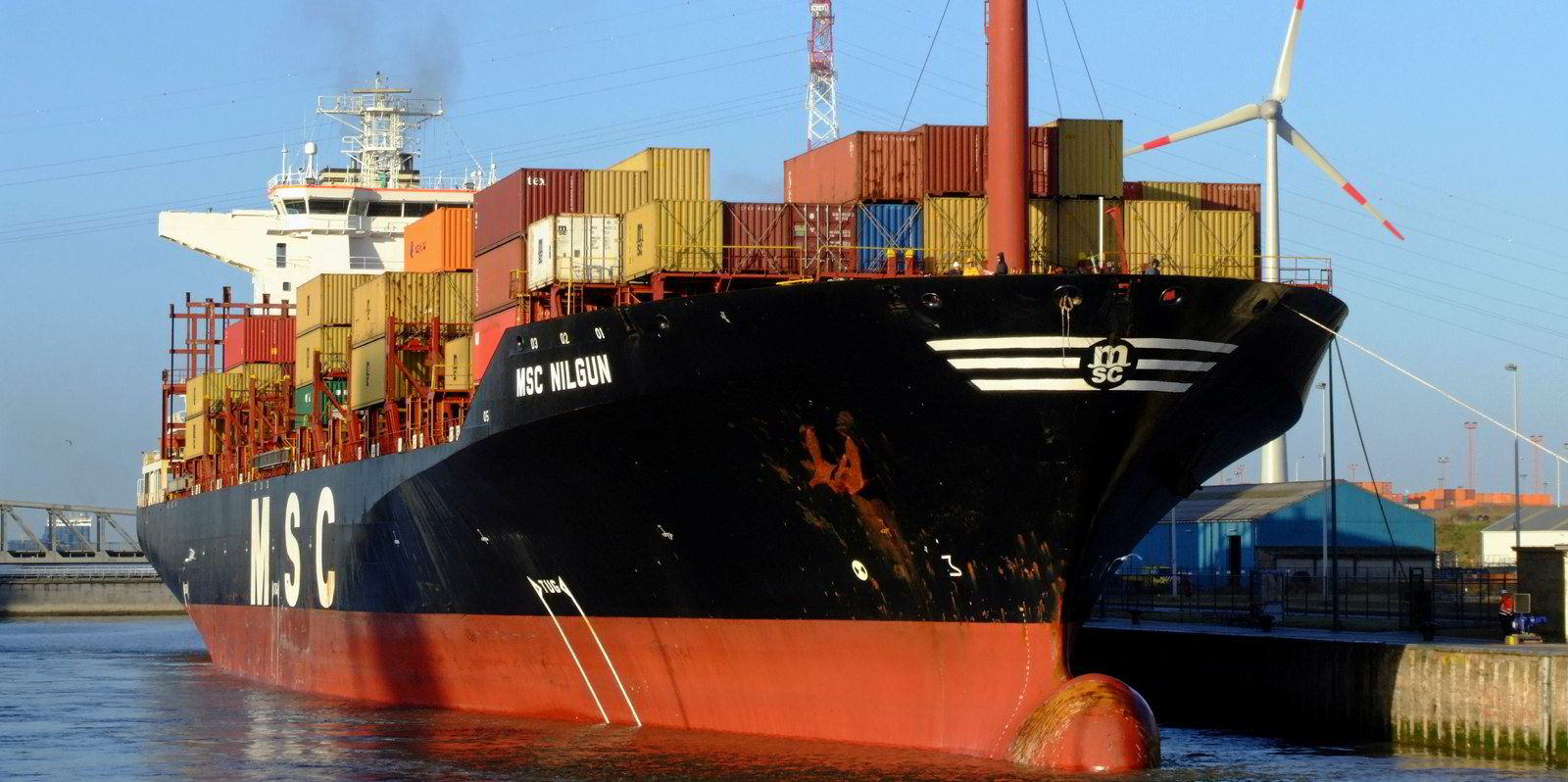Dutch reefer owner Seatrade has agreed to pay prosecutors to settle a long-running illegal scrapping case.
The company, and two unnamed directors, will pay the Netherland Public Prosecution Service €2.65m ($2.84m) to end the legal battle over the sale of four reefers into India, Bangladesh and Turkey that contravened the European Waste Shipment Regulation.
Seatrade will also pay a further €3m, representing the amount it earned from the demolition sales
A statement from the prosecutor said management at Seatrade acknowledged it had scrapped the four vessels without complying with the regulation.
Seatrade has said it regrets “choices made at the time” and will ensure that any future dismantling of seagoing vessels is done in accordance with the applicable rules, the statement added.
The company has been contacted for further comment.
The case goes back to the recycling in 2012 of the 461,816-cbf Spring Bear, Spring Bob, Spring Panda and Spring Deli (all built 1984).
Guilty verdicts were handed down in a criminal hearing at Rotterdam District Court in 2018, but these were overturned by the Hague Court of Appeal in 2020.
The case had been due to return to a lower court.
Appeal judges questioned one of the Rotterdam District Court judges’ impartiality in the retrial.
Precedent set
The appeal court judgment referred to the non-disclosure of an unnamed judge’s involvement in a 2014 civil case also involving two of the Seatrade executives charged in the criminal case.
This prevented Seatrade from challenging the judge’s participation in the later trial.
Seatrade’s defence in 2018 hinged on the fact that when the ships left Europe they were seaworthy and still trading with cargo on board.
However, the Rotterdam court ruling set a precedent that vessels leaving Europe in such a condition and eventually ending up at a recycling yard can still be considered waste export and are liable for prosecution.
“Seatrade has always strongly disagreed with the legal interpretation of the Rotterdam District Court that a fully certified, seaworthy vessel should be considered waste,” the shipowner said back then.
Two Seatrade executives were originally found guilty of breaking European Union waste export laws, while one was acquitted.
The ruling represented the first prosecution of a ship demolition sale under the EU rules.
The decision opened the door to the potential prosecution of hundreds of similar historic sales involving vessels that left Europe for demolition in non-OECD countries, TradeWinds reported at the time.
The two unnamed executives had avoided the prison sentence demanded by Dutch prosecutors, but were banned from working in shipping for 12 months.






